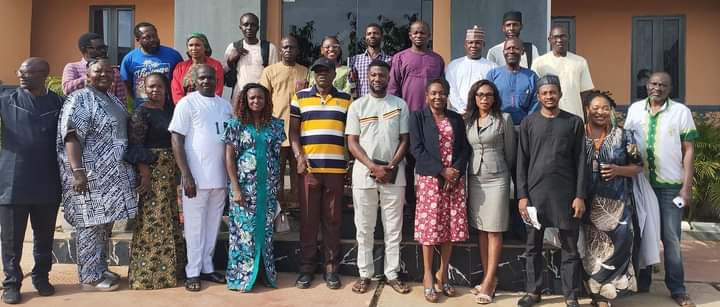Journalists from six states under the Tuberculosis Northern Cluster have made commitments to use their various platforms to effectively create awareness of the infectious disease, tuberculosis.
The stakeholders committed to a two-day TB media roundtable organised by the TB Northern Cluster that comprises Bauchi, Benue, Kano, Katsina, Nasarawa and Plateau States with the support of SCALE USAID Palladium on Thursday in Keffi, Nasarawa State.
A Journalist with Punch Newspaper, Faith Maji said the media must rise to create awareness among communities about tuberculosis which has continued to ravage States in the North.
“I didn’t know the magnitude of tuberculosis was this much, because that’s an area I have not reported on, but with is meeting I have realized that it is a pandemic and I commit to increase my reportage on the disease.”
Another media practitioner with Federal Radio Corporation, Ishaku Ali said the media is critical for the fight to eradicate tuberculosis, stressing the importance of collaboration with relevant stakeholders on accurate information about the disease.
Also, Alfred Akwe of Krest News noted that Tuberculosis (TB) is still a public health disease that is preventable but it remains a significant global health challenge.
He said journalists need to create awareness about the disease which is infectious and how people can protect themselves.
“The media has a critical role to inform the public about TB, its symptoms, transmission, and prevention methods, where to access treatment as well as address misconceptions and stigma associated with the disease.”
The journalists said they faced challenges in reporting tuberculosis because of a lack of knowledge about the disease, inadequate data and government bottleneck
Executive Director of the anchor organization Centre for Women, Youth and Community Action (NWYCA), Nawani Aboki said the media round table is to equip the media with gaps in tuberculosis control in terms of funding.
“We have states with no specific budget line for tuberculosis so the media and Civil Society Organizations should work to ensure that all States allocate budget to the fight against TB and mobilize the private sector to be involved in this fight.”
The Executive Director, of LANGA Women Development Initiative, one of the TB implementing clusters, Grace Maikudi said tuberculosis has continued to cause morbidity and mortality in Nigeria even as its treatment is free.
She stated that effective TB control requires sustained financial investment, and while international funding plays a crucial role, domestic funding is equally essential for comprehensive and long-term TB control strategies.
She urged governments and the private sector to prioritize TB control in their budgets, considering the high burden and long-term economic benefits of effective TB management.
According to her, donor partner funding alone is insufficient to address the scale of TB challenges, particularly where the TB burden is highest.
While appreciating the government’s efforts, she urged stakeholders in the private sector to complement international support with domestic resources.
“This funding is critical for developing and implementing TB control programs, including prevention, diagnosis, treatment, and healthcare infrastructure and awareness campaign.”
Maikudi explained that increased domestic funding ensures the continuity, sustainability and stability of TB control programs.
The TB Northern Nexus cluster comprises six CSOs including the anchor, Center for Women, Youth and Community Action, LANGA Women Development Initiative, CADI, OWACDO, HDAL and KRP-FEMA.
By Lizzy Carr


